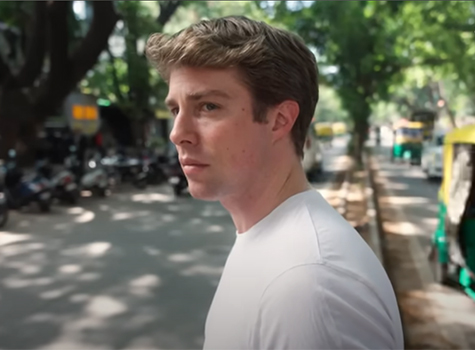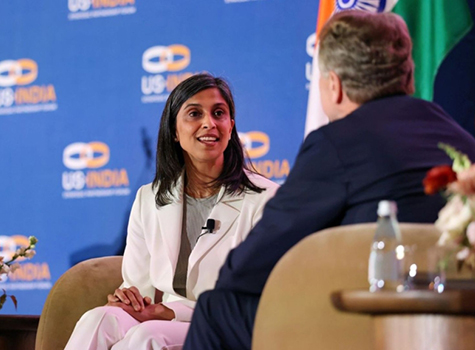By Hiren Deliwala

We have all had those days when we rush from one meeting to another, clear out our inboxes, respond to Slack messages, and update reports. By the end of the day, we collapse onto the couch, feeling like we’ve been incredibly productive. But then, a nagging thought creeps in: What did I actually accomplish?
This feeling isn’t new. We know this dynamic all too well—the difference between being busy and being productive. Checking off a long list of tasks feels satisfying, but it’s worth asking whether those tasks are moving us forward in a meaningful way. Are we truly accomplishing something that matters, or are we just filling our time?
Cal Newport, in his book Deep Work: Rules for Focused Success in a Distracted World, makes a powerful point: “The ability to perform deep work is becoming increasingly rare at exactly the same time it is becoming increasingly valuable in our economy.” When I first read that, it hit me. The ability to truly focus on high-value, cognitively demanding tasks has become a rare and precious skill. It’s not just that we can’t get enough done; it’s that, as Newport explains, the things that really move us forward are harder to do in a world constantly pulling us in different directions.
The reality is that what I’m sharing here isn’t anything new. We already know that focusing on deep, meaningful work matters. The challenge is implementing it. We know what’s important, but how often do we allow ourselves to be swept away by the daily tide of distractions?
Take Adam Grant, for example. As the youngest full professor at Wharton, he’s a great case study in how deep work can lead to extraordinary accomplishments. In 2012, he published seven academic papers in top-tier journals — a monumental achievement in academia. The following year, he wrote Give and Take, a bestselling book that landed on the cover of The New York Times Magazine. By 2014, he had published over 60 peer-reviewed papers, all while continuing to teach and mentor. It’s not just the sheer volume of his work that stands out, though. What’s truly remarkable is how deeply he focused on those high-impact tasks, while keeping distractions to a minimum. It wasn’t about working harder, it was about working smarter, focusing on what truly mattered.
That said, deep work isn’t always easy. Before we can really engage with it, we have to recognize the forces that work against us. For most of us, shallow work fills up our day — tasks like replying to emails, attending routine meetings, and handling administrative duties. These are necessary, but they don’t require much cognitive effort. Deep work, by contrast, involves things like writing, strategizing, and solving complex problems. The activities that demand sustained focus and while creating new value.
And here’s the thing: shallow work has a way of taking over. We feel productive because we’re constantly busy — answering emails, checking in on Slack, sitting through meetings. But, as I’ve found, busyness doesn’t necessarily equal progress. In many ways, we’re caught in a culture that worships busyness. There’s a strange sense of validation that comes with being overwhelmed, with being constantly “on.” We tell ourselves, Look how much I’ve done today, but how often do we stop and ask ourselves, “Did any of it actually matter?”
In my own experience, I’ve found that the pursuit of efficiency, doing more in less time, can sometimes lead us to optimize the wrong things. I can send 500 emails in a day, but does that make a real impact? On the flip side, when I’ve taken the time to write a proposal that wins a major client or developed a strategy that transforms how we approach a challenge, that feels like accomplishment — because it moves us forward in a meaningful way. Efficiency is fine, but it’s accomplishment that truly drives us.
I’ve also learned that implementing deep work isn’t about finding a magic solution but rather making intentional choices. For me, one simple practice that has helped is using the kitchen timer method, which is, essentially, a version of the Pomodoro technique. I set a timer for 25 minutes, turn off all notifications, and just focus. After the timer goes off, I take a break, then repeat. It’s not a groundbreaking technique, but it’s been surprisingly effective in forcing me into bursts of intense concentration, which in turn helps me tackle more meaningful tasks.
Another thing I’ve found helpful is batching shallow work. For a while, I let emails and meetings interrupt my day in a constant cycle. Now, I schedule specific times to deal with them. I’ll check emails twice a day, for example, instead of constantly checking my inbox. It’s not perfect, but it helps create space in my day for deeper, more focused work. And in those periods of deep work, I’ve started treating them as non-negotiable, much like I would an important meeting with someone else.
In reading Give and Take by Adam Grant, another lesson I’ve come to appreciate is how the most valuable work often comes when we lift others up. Helping others succeed is a key element of deep work. It’s not just about focusing on my own tasks; it’s about creating value for others as well. For me, that means mentoring a colleague instead of simply answering their questions via email or collaborating on a project that will benefit the whole team. Real accomplishment, I’ve realized, is not just about what I achieve alone. It is about the impact I have on those around me.
Ultimately, I’ve come to realize that our culture’s obsession with busyness needs to be re-examined. For too long, we’ve celebrated being busy as a sign of success, but I’ve learned that busyness isn’t the goal, but accomplishment is. Adam Grant didn’t rise to the top by attending more meetings or answering more emails. He focused on deep, meaningful work that created lasting value.
So, when I look back at my own day, instead of measuring it by how many emails I’ve sent or meetings I’ve attended, I try to ask myself, “Did I do something today that truly mattered?” It’s not about how busy we are, it’s about how much we’ve accomplished. And while I’m still figuring this out myself, the key lesson from Newport and Grant is clear: If we want to move forward, we need to make deep work, not shallow busyness, our priority.
Hiren Deliwala currently serves as the Leader of Solutions Architecture for the Worldwide Public Sector at Amazon Web Services (AWS). He received his MBA from UNC Chapel Hill. Contact: hcdeliwala@gmail.com



